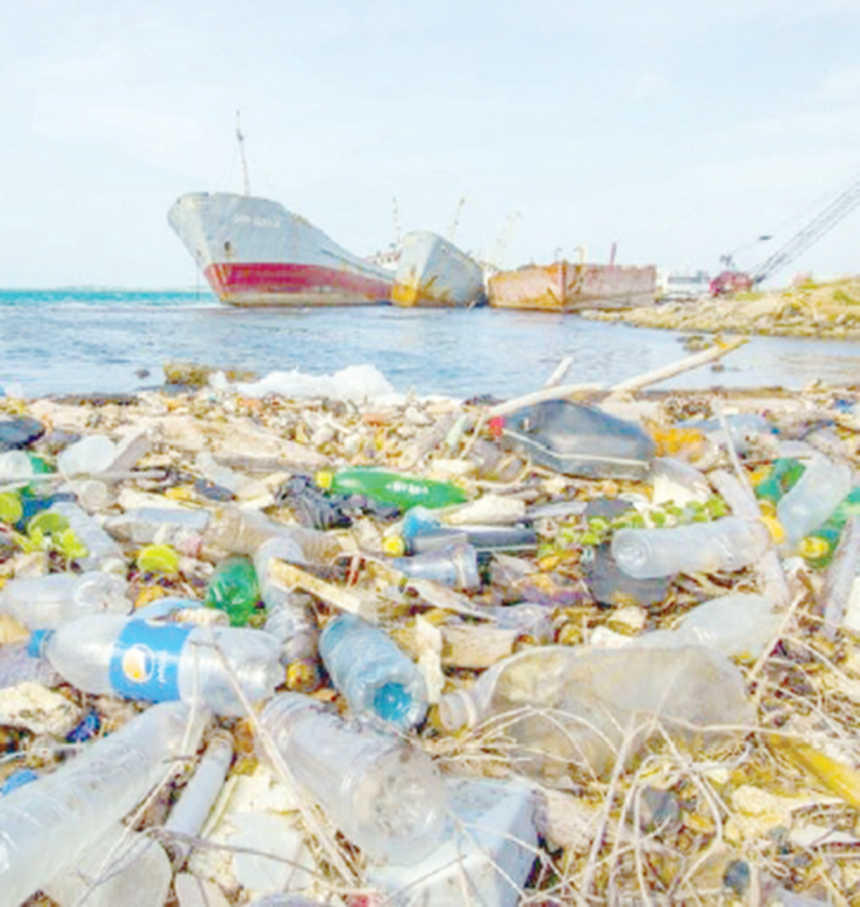•Operators finger littoral State, FMCG companies
Many vessels are incurring losses following the prevalence of debris across the Nigerian waterways, checks by the Nigerian Tribune has revealed.
This is even as questions have been asked over waste disposal mechanism of many waste management agencies of different state governments and Fast-Moving Consumer Goods (FMCG) companies in Nigeria.
Speaking with the Nigerian Tribune exclusively, a Master Mariner and Second Vice President of the Nigerian Association of Master Mariners (NAMM), Captain Olajide Olugunwa, lamented that many vessels are incurring huge losses in billions due to the effect of marine debris on their engines.
According to Olugunwa, “Vessels are incurring losses every day due to the effect of marine debris on their propellers, rudders, and thrusters. Vessels have had to execute emergency stops midstream due to debris sightings, thus jeopardising safety, cargo, and schedules.”
Giving details on how marine debris impact vessel engines, the NAMM Second Vice President explained that, “During marine engine cooling operations using the medium it floats on, water, marine debris are pulled into the strainers by suction, impellers, ballast pumps, or air-conditioning intakes; and the result is overheating, mechanical failure, or total system shutdown.”
On why marine debris litter Nigerian waterways, the Master Marine blamed the waste disposal mechanisms of many littoral States in Nigeria, including FMCG companies.
“Many State governments, particularly littoral State dispose waste in water bodies. Its not uncommon to see officials of the Lagos Waste Management Authority (LAWMA) pouring waste into the lagoon during cleaning operations on the Third Mainland bridge.
“Many communities in littoral States like Akwa Ibom, Bayelsa, and Rivers States empty their waste in water bodies, thus ensuring the prevalence of marine debris in Nigerian waters.
ALSO READ FROM NIGERIAN TRIBUNE: Why I told Obi to seek my consent before visiting Edo — Okpebholo
“Also, FMCG companies are culpable to waste disposal in water bodies. It is imperative that food and beverage multinationals are held accountable for their packaging waste via Extended Producer Responsibility (EPR) mechanisms.”
Efforts to get LAWMA reaction to waste disposal into the Lagos lagoon via the Third Mainland bridge by its officials proved abortive as calls and messages sent to the agency Spokesperson, Folashade Kadiri were not responded to as at the time of filing in this report.
WATCH TOP VIDEOS FROM NIGERIAN TRIBUNE TV
- Relationship Hangout: Public vs Private Proposals – Which Truly Wins in Love?
- “No” Is a Complete Sentence: Why You Should Stop Feeling Guilty
- Relationship Hangout: Friendship Talk 2025 – How to Be a Good Friend & Big Questions on Friendship
- Police Overpower Armed Robbers in Ibadan After Fierce Struggle






